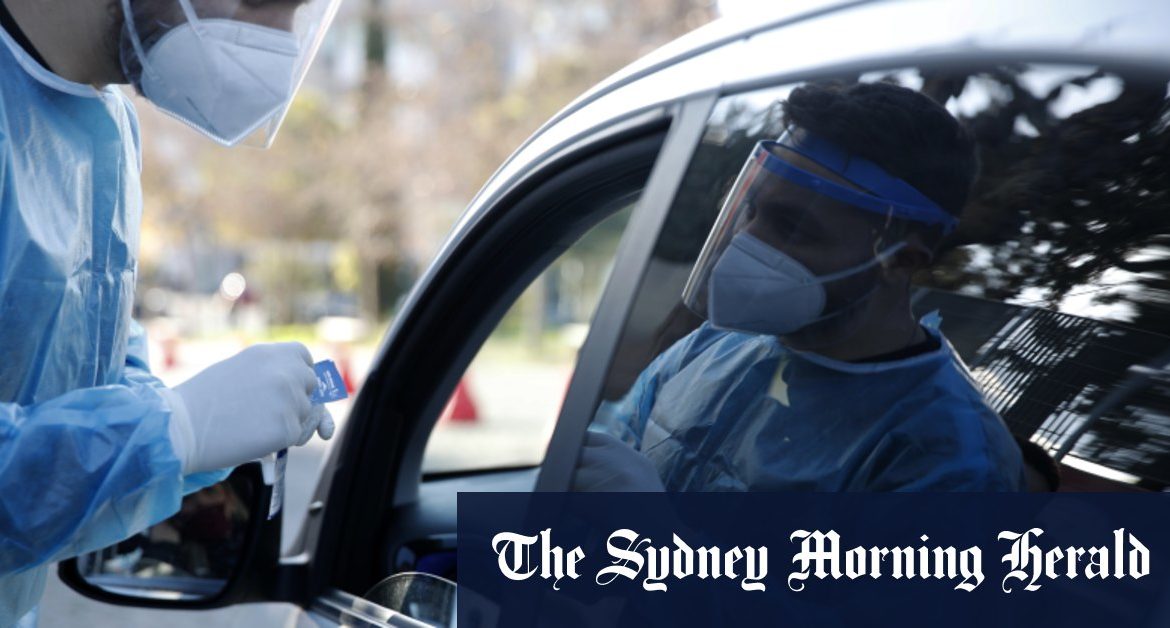While Britain rolled out a second vaccine this week and some US states are starting to give booster shots from the country’s first vaccine, access to inoculations globally is sharply unequal. The supply also isn’t remotely close to meeting the massive demand needed to fight a microscopic foe that has already killed more than 1.85 million people.
“We’re at intense pandemic in Europe, intense pandemic in the US,” Harris said. “The more you can bring the transmission down, the better chance you have of your vaccine vaccination strategy working.”
England is facing a third national lockdown that will last at least six weeks, as authorities struggle to stem a surge in COVID-19 infections that is threatening to overwhelm its hospitals.
Prime Minister Boris Johnson announced a tough new stay-at-home order for England that takes effect at midnight on Tuesday and includes shutting schools, restaurants and all non-essential shops, and won’t be reviewed until at least mid-February. Scottish leader Nicola Sturgeon imposed a lockdown that began on Tuesday.
The two leaders said the restrictions were needed to protect the National Health Service amid the emergence of new, more contagious virus variant that has sent daily infections, hospitalizations and deaths soaring.
The NHS “is going through probably the toughest time in living memory,” said Siva Anandaciva, chief analyst of the King’s Fund think-tank. He said some UK emergency rooms have waiting times of 12 hours and doctors were treating people lined up in ambulances outside.
Loading
Elsewhere in Europe, Italy extended its Christmas lockdown, Spain is restricting travel and Germany’s chancellor was meeting on Tuesday with state governors to decide how long to extend the latest lockdown. Cyprus and France are likely to announce tougher measures on Thursday, and Ukraine is closing schools and restaurants starting on Friday.
In Latin America, some warn the worst is yet to come.
Mexico’s capital has more virus patients than at any point in the pandemic and is flying in doctors from less hard-hit states. Its beach resorts are readying for more cases after thousands of US and European tourists visited over the holidays.
“Probably in the third week of January, we are going to see the system stressed more, that there will be more ambulatory cases and cases requiring hospitalisation,” said Dr Mauricio Rodriguez of Mexico’s National Autonomous University. He blamed the rise on fatigue with social distancing, mixed messages from public figures and Mexicans lowering their guard during the holidays.
Beach parties were blamed for surging cases in Argentina, notably among young people, and the government is considering new restrictions.
In South Africa, the continent’s hardest-hit nation, authorities re-imposed a curfew, banned liquor sales and closed most beaches. Zimbabwe reintroduced a curfew, banned public gatherings, and indefinitely suspended the opening of schools.
South Africa’s undertakers are struggling to cope with the rise in deaths, National Funeral Practitioners Association of SA President Muzi Hlengwa told state broadcaster SABC.
“It is something that you have never seen before … We have run out of coffins, we have run out of space at the mortuary,” he said. “We normally have cremations during the day but now we have cremations even at night.”
The pandemic is even reaching countries that seemed to have the virus under control.
Thailand is facing an unexpected surge that has infected thousands in a few weeks blamed on complacency and poor planning. The government is locking down large parts of the country, including the capital Bangkok, and considering tougher measures.
“We don’t want to lock down the entire country because we know what the problems are, so can you all lock down yourselves?” Prime Minister Prayut Chan-o-cha pleaded with his nation.
Japan is getting ready to declare a state of emergency this week, beefing up border controls and speeding up vaccine approval after a surge of cases around New Year’s Eve.
Italy has been trying to control its latest surge with local measures. After two months of restrictions, infections have plateaued but hospitals are still under pressure, hundreds of people are still dying every day and officials fear cases will surge again due to holiday get-togethers.
And holiday worries aren’t over now that 2021 has arrived.
Pope Francis abandoned an annual ritual of baptising babies in the Sistine Chapel tied to Wednesday’s Epiphany holiday. Orthodox Christian countries like Russia and Greece could face more infections after they celebrate Christmas on Thursday. And China is closing schools early ahead of next month’s Lunar New Year holiday, telling migrant workers not to go home and tourists to avoid Beijing.
Loading
Vaccines offer an exit, but are getting off to a slow start in many places. Some US states are struggling to secure enough shots and organise vaccinations. The Netherlands has come under heavy criticism for being the last European Union nation to start inoculations, which it will do on Wednesday. Australia isn’t planning to do so until March. And most poorer countries are even farther behind.
Opposition politician Geert Wilders called the Dutch government “the village idiot of Europe”.
Yet India offers a glimmer of hope. Its infection rate is down significantly from a September peak, and the country is kicking off one of the largest inoculation programs in the world, aiming at vaccinating 300 million people by August.
AP
Get our Coronavirus Update newsletter
Stay across the news you need to know related to the pandemic. Sent Monday and Thursday. Sign up here.
Most Viewed in World
Loading







